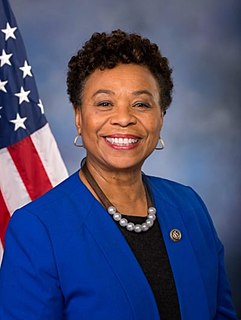A Quote by Bonnie Jo Campbell
Any of us who listen to the news or listen to stories our neighbors tell are accustomed to violence. We have to decide then to ignore the violence and create a gentler world in our fiction, or to heighten the violence through the use of point-of-view in order to explore it and gain some insight and understanding. Since I'm living with the violence and trouble in my brain, it's kind of a relief to write about it, to get it on paper, to put it in context, to find meaning in it.
Related Quotes
We must realize that violence is not confined to physical violence. Fear is violence, caste discrimination is violence, exploitation of others, however subtle, is violence, segregation is violence, thinking ill of others and condemning others are violence. In order to reduce individual acts of physical violence, we must work to eliminate violence at all levels, mental, verbal, personal, and social, including violence to animals, plants, and all other forms of life.
My country has been wracked with violence for a long time. Just to see all the violence on the news makes you sick. It's true that violence is in our nature, but I try to explore deeply where it comes from and where it goes and what it creates. Not in a moralistic or preachy way, but just to observe the real consequences of violence in a human being or in a society.
I must remind you that starving a child is violence. Suppressing a culture is violence. Neglecting school children is violence. Punishing a mother and her family is violence. Discrimination against a working man is violence. Ghetto housing is violence. Ignoring medical need is violence. Contempt for poverty is violence.
My approach to violence is that if it's pertinent, if that's the kind of movie you're making, then it has a purposeI think there's a natural system in your own head about how much violence the scene warrants. It's not an intellectual process, it's an instinctive process. I like to think it's not violence for the sake of violence and in this particular film, it's actually violence for the annihilation of violence.
I'm so sick of seeing guns in movies, and all this violence; and if there was going to be violence in Pines, I wanted it to actually be narrative violence. I wasn't interested in fetishizing violence in any way of making it feel cool or slow-motion violence. I wanted it to be just violence that affected the story.
I'm really interested in violence. And I think there's an inevitably cinematic property that violence brings to the moviegoing experience. But one still has to be thoughtful and mature about how you depict it and how you think it through. You have to think about the effects that violence has on audiences, and it's deployed so casually that I think it's losing its meaning. And when things like violence and murder and the dehumanization of other people lose their meaning, then we're really kind of in a place where we have to reexamine and take a hard look at ourselves.
Domestic violence can be so easy for people to ignore, as it often happens without any witnesses and it is sometimes easier not to get involved. Yet, by publicly speaking out against domestic violence, together we can challenge attitudes towards violence in the home and show that domestic violence is a crime and not merely unacceptable.
I've told the kids in the ghettos that violence won't solve their problems, but then they ask me, and rightly so; "Why does the government use massive doses of violence to bring about the change it wants in the world?" After this I knew that I could no longer speak against the violence in the ghettos without also speaking against the violence of my government.
Violence never really deals with the basic evil of the situation. Violence may murder the murderer, but it doesn’t murder murder. Violence may murder the liar, but it doesn’t murder lie; it doesn’t establish truth. Violence may even murder the dishonest man, but it doesn’t murder dishonesty. Violence may go to the point of murdering the hater, but it doesn’t murder hate. It may increase hate. It is always a descending spiral leading nowhere. This is the ultimate weakness of violence: It multiplies evil and violence in the universe. It doesn’t solve any problems.
I'm concerned about a better world. I'm concerned about justice; I'm concerned about brotherhood; I'm concerned about truth. And when one is concerned about that, he can never advocate violence. For through violence you may murder a murderer, but you can't murder murder. Through violence you may murder a liar, but you can't establish truth. Through violence you may murder a hater, but you can't murder hate through violence. Darkness cannot put out darkness; only light can do that.




































